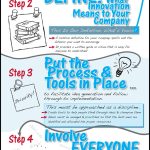Revolutionizing Business: Mastering Innovation Technology And Knowledge Management
Innovation Technology and Knowledge Management
Introduction
Dear Readers,
1 Picture Gallery: Revolutionizing Business: Mastering Innovation Technology And Knowledge Management
![Picture of: PDF] A study on the relationship between knowledge management](https://rosecfo.info/wp-content/uploads/2023/09/pdf-a-study-on-the-relationship-between-knowledge-management.png)
Welcome to this article on innovation technology and knowledge management. In today’s rapidly evolving world, the intersection of technology and knowledge management plays a crucial role in driving growth and success for organizations. It is important for businesses to leverage innovative technologies to effectively manage and utilize their knowledge assets.
![innovation technology and knowledge management - PDF] A study on the relationship between knowledge management innovation technology and knowledge management - PDF] A study on the relationship between knowledge management](https://rosecfo.info/wp-content/uploads/2023/09/pdf-a-study-on-the-relationship-between-knowledge-management.png)
Image Source: cloudfront.net
In this article, we will explore the various aspects of innovation technology and knowledge management, its benefits, and potential challenges. By understanding these concepts, you will be equipped with valuable insights to enhance your organization’s competitiveness in the digital age.
So, let’s delve into the world of innovation technology and knowledge management and discover how it can shape the future of your business.
What is Innovation Technology and Knowledge Management?
🔍 Innovation technology refers to the use of new or improved technologies to drive innovation within an organization. It involves the application of technical advancements to create and develop new products, services, or processes. Knowledge management, on the other hand, is the systematic process of capturing, organizing, and sharing knowledge within an organization to enhance productivity, innovation, and decision-making.
🧠 When these two concepts converge, organizations can harness the power of technology to effectively manage and leverage their knowledge assets. This enables them to stay competitive, adapt to changing market demands, and drive sustainable growth.
Who Should Be Involved in Innovation Technology and Knowledge Management?
👥 Innovation technology and knowledge management are not limited to a specific group of individuals within an organization. It involves the collective efforts of various stakeholders, including:
1. Top-level executives: They play a crucial role in setting the vision, goals, and strategies related to innovation technology and knowledge management.
2. IT professionals: They are responsible for implementing and maintaining the technological infrastructure required for effective knowledge management.
3. Knowledge managers: They are responsible for capturing, organizing, and disseminating knowledge throughout the organization.
4. Employees: All employees should be actively involved in knowledge sharing and innovation to contribute to the overall success of innovation technology and knowledge management initiatives.
When Should Organizations Embrace Innovation Technology and Knowledge Management?
🗓️ Organizations should embrace innovation technology and knowledge management as early as possible to gain a competitive edge. In today’s fast-paced business environment, staying up-to-date with the latest technologies and effectively managing knowledge is essential to drive innovation and growth. By embracing these concepts early on, organizations can adapt to market changes, capitalize on emerging opportunities, and mitigate potential risks.
Where Can Innovation Technology and Knowledge Management Be Utilized?
🌍 Innovation technology and knowledge management can be utilized in various industries and sectors. Its applications are not limited to any specific geographical location. Organizations across the globe can leverage innovation technology and knowledge management to enhance their competitiveness. Whether it is a small startup or a multinational corporation, the principles of innovation technology and knowledge management can be applied to drive growth and success.
Why Is Innovation Technology and Knowledge Management Important?
❓ Innovation technology and knowledge management are important for several reasons:
1. Enhancing competitiveness: By leveraging innovative technologies and effectively managing knowledge, organizations can gain a competitive edge in the market.
2. Driving innovation: Innovation technology and knowledge management facilitate the development of new products, services, and processes, enabling organizations to stay ahead of the curve.
3. Improving decision-making: Effective knowledge management ensures that accurate and up-to-date information is available for making informed decisions.
4. Increasing productivity: By harnessing technology and knowledge, organizations can streamline processes, improve efficiency, and boost productivity.
5. Fostering collaboration: Innovation technology and knowledge management encourage collaboration and knowledge sharing among employees, leading to better teamwork and problem-solving.
How Can Organizations Implement Innovation Technology and Knowledge Management?
📚 Implementing innovation technology and knowledge management involves the following steps:
1. Assess organizational needs: Identify the areas where innovation technology and knowledge management can have the most significant impact.
2. Invest in the right technologies: Select and implement technology solutions that align with your organization’s goals and requirements.
3. Develop a knowledge management strategy: Define processes and systems for capturing, organizing, and sharing knowledge within the organization.
4. Encourage a culture of innovation and knowledge sharing: Foster an environment that promotes creativity, collaboration, and continuous learning.
5. Provide training and support: Equip employees with the necessary skills and resources to effectively utilize innovative technologies and participate in knowledge management initiatives.
Advantages and Disadvantages of Innovation Technology and Knowledge Management
Advantages:
1. Facilitates innovation and competitive advantage.
2. Improves decision-making and problem-solving.
3. Enhances productivity and efficiency.
4. Fosters collaboration and knowledge sharing.
5. Enables effective utilization of knowledge assets.
Disadvantages:
1. Requires significant investment in technology and infrastructure.
2. Challenges in capturing and organizing knowledge effectively.
3. Potential resistance to change from employees.
4. Risk of information overload and lack of quality control.
5. Cybersecurity and data privacy concerns.
Frequently Asked Questions (FAQs)
1. Q: How can innovation technology benefit small businesses?
A: Innovation technology can help small businesses streamline processes, improve efficiency, and compete with larger competitors.
2. Q: What are the key components of a successful knowledge management strategy?
A: A successful knowledge management strategy includes processes, technology, culture, and governance.
3. Q: Can innovation technology and knowledge management be applied in non-profit organizations?
A: Yes, innovation technology and knowledge management can benefit non-profit organizations by enhancing their effectiveness and impact.
4. Q: How can organizations overcome resistance to change when implementing innovation technology and knowledge management?
A: Effective change management, communication, and employee engagement can help overcome resistance to change.
5. Q: What are some emerging trends in innovation technology and knowledge management?
A: Some emerging trends include artificial intelligence, machine learning, data analytics, and virtual reality.
Conclusion
Innovation technology and knowledge management provide organizations with the tools and strategies to thrive in today’s dynamic business environment. By embracing these concepts, organizations can drive innovation, enhance competitiveness, and unlock their full potential. It is essential for organizations to invest in the right technologies, develop a robust knowledge management strategy, and foster a culture of collaboration and continuous learning. By doing so, they can position themselves for long-term success and stay ahead of the curve.
Final Remarks
Dear Readers,
Innovation technology and knowledge management are powerful forces that can shape the future of organizations. However, it is important to recognize that implementing these concepts requires careful planning, investment, and cultural transformation. Organizations must consider their unique needs, challenges, and goals to effectively harness the potential of innovation technology and knowledge management.
As you embark on your journey to embrace innovation technology and knowledge management, remember that it is a continuous process of learning and adaptation. Stay curious, keep exploring new technologies and best practices, and always strive for excellence in managing and leveraging your knowledge assets.
Best wishes for a successful and innovative future!
This post topic: Technology Innovation

